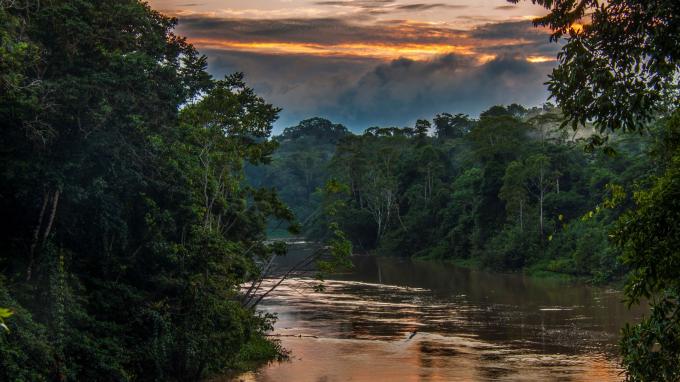
Photo by Jose Schreckinger (distributed via imaggeo.egu.eu).

Photo by Jose Schreckinger (distributed via imaggeo.egu.eu).
The Democratic Practice Program will focus more resources on the Amazon River Basin going forward.
Since its last program review in 2017, the Rockefeller Brothers Fund (RBF) Democratic Practice–Global Challenges program’s guidelines have emphasized bottom-up empowerment, not just top-down institutional change to address shared challenges. Over the past seven years, the program’s work has taken place in an increasingly volatile and uncertain context driven by two trends: a historic explosion in global output and an associated rise in life-threatening carbon emissions. This accelerating human activity is contributing to food insecurity, biodiversity loss, and the spread of disease. The resulting competition for resources has led to a rise in violence, forced displacement, and open war. Much of the Global South now views the patchwork of global governance institutions with cynicism. Though crisis is nothing new, this polycrisis—multiple and simultaneous interacting economic, social, political, and environmental crises, with cascading trigger effects—arguably is.
Given the complexity of making large-scale change amid these cascading crises, the program homed in on collaborative, cross-border initiatives to challenge the expansion of the global fossil fuel industry, make rules governing global trade and investment more equitable, and codify the basic interdependence between humans and nature in governance and legal systems.
RBF grantees and their successes illustrate how meaningful change can stem from new ways of working and new bases of power:
The RBF Democratic Practice–Global Challenges program remains committed to funding based on the principles of flexibility, trust, and responsiveness that helped its grantees achieve these concrete wins. New program guidelines affirm this approach, with a revised goal that more clearly emphasizes the program’s commitment to social and environmental justice.